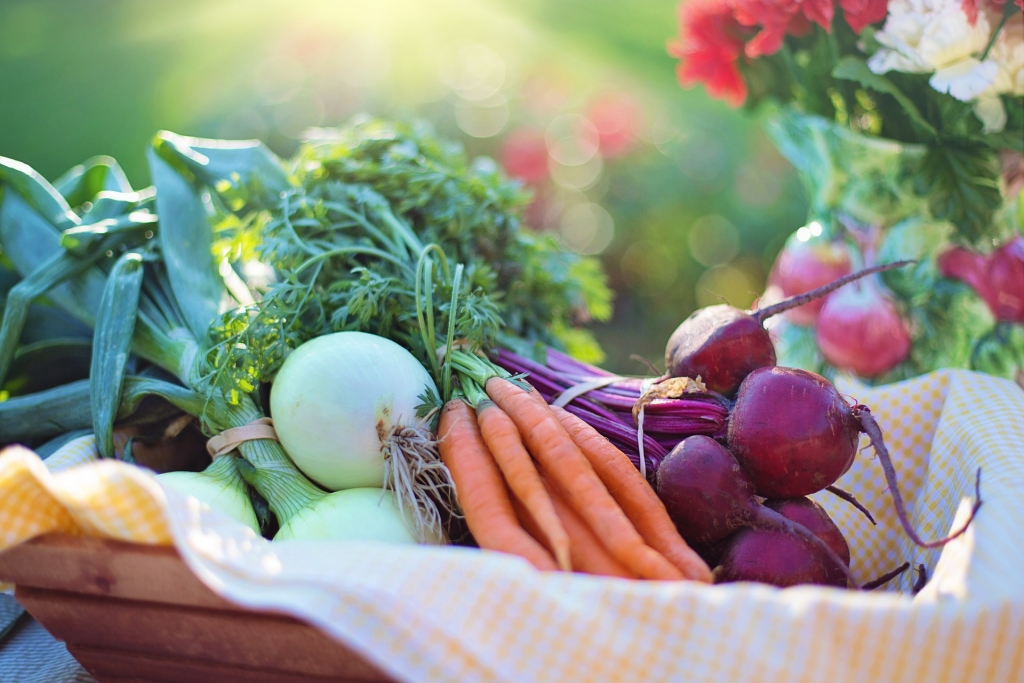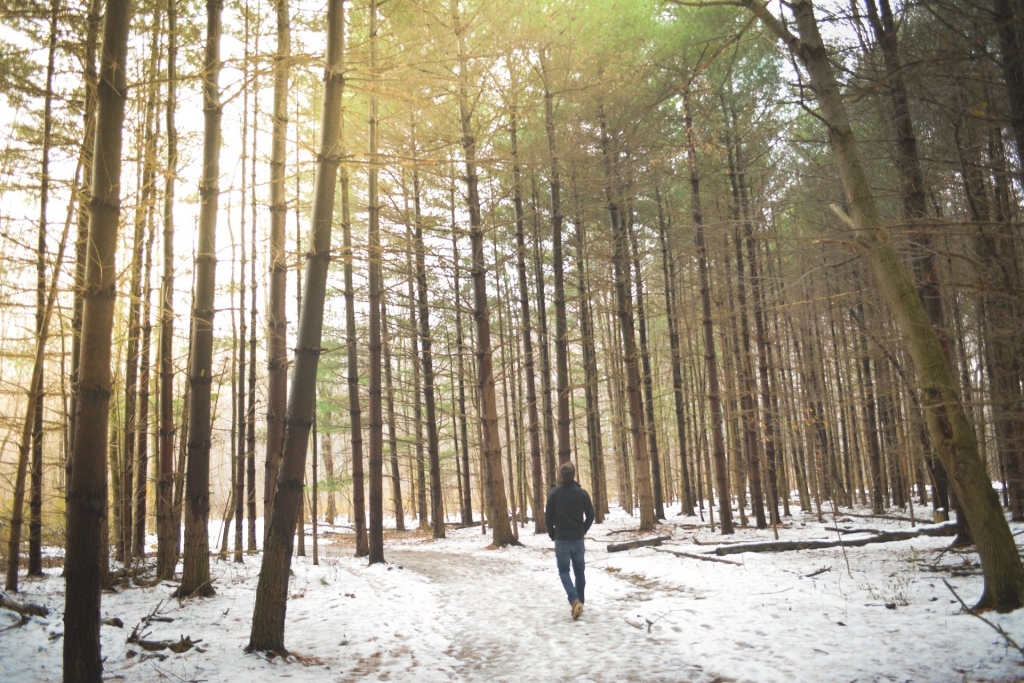There was once a miser who lived alone aside from some servants and a dog, whom he hadn’t bothered to name, in a large draughty mansion. He had no friends and had never even given anyone a present. He spent his days alone counting and recounting his money, never leaving his house for fear of spending any of his precious gold. He left home but one time a year to collect taxes from the peasants who farmed his land.
One year he left to collect taxes in a grand chariot. After he had collected all his taxes, he was on his way home when thieves robbed them, stealing the gold, the chariot, even the clothes off his back. Left in the middle of open country, he fell asleep crying.
The next day he and his dog walked for hours. He was becoming very hungry and feeling quite sorry for himself. Suddenly his dog began barking and ran off. The miser followed his dog and discovered a small hut surrounded by wild roses. He knocked on the door, fearing the rejection he figured would come. After all, he’d always rejected anyone who came to his mansion looking for help.
A kind man answered the door and let him in. He offered him food, apologizing that all he had was rice. He took the last of his rice, filled a large bowl for his dog to share with the miser’s dog and spilt the remainder between two small bowls for the men, all the while smiling and joking. When they were finished eating, the man offered the miser his sleeping spot on the floor in front of the fire. That night the miser thought a lot about how happy the man was who had nothing, and how miserable he had been with so many luxuries.
In the end, the miser ended up inviting the man and his dog to come live with him in his mansion. He ended up becoming a generous and kind person, and named his dog Merry. The point of this Jataka tale is to show that greed causes suffering and generosity causes happiness for all who are involved. But what else can we gain from this story?
All of life involves suffering. Without suffering, we cannot know joy. The miser always had anything he ever wanted. He was never a beggar like those who came to his door asking for help, so he couldn’t empathize with them. He knew it was good to have all that gold, as evident in his strong desire to keep it all to himself. However, he didn’t know how hard it could be to not have any of it, so he wasn’t truly grateful for it.
When we experience extreme poverty, we tend to cultivate the ability to better enjoy little things. Whenever we get sick, we remember how much we appreciate health. Whenever we hurt a leg, we appreciate our ability to walk. Suffering enables gratitude.
But suffering is also a necessity, built into life to make us stronger, healthier, and more resilient. As a species, we have tried our hardest to eliminate suffering from our lives. We built cities and developed agriculture; invented ships, trains, cars, and airplanes; and created climate-controlled lives.
However much of this avoidance of suffering in the short term comes at a cost, and that cost is often suffering in the long term. The overarching consequence is that our bodies are becoming more fragile. The human species as a whole is sidestepping evolution. For example, our skeletons are becoming lighter and narrower – check out this Rewild Yourself podcast which discusses this evolution of Homo sapiens.
For a long time I’ve been pondering this idea that suffering comes regardless, and that we should choose our suffering wisely. There are different ways to look at suffering, of course. First off, you can detach yourself from expectations to reduce suffering. For example, you can look at rain or wind in different ways. If you expect a sunny day, and it begins to rain, and you are attached to that expectation, you might feel agitated, and hence suffer from the rain. You could just choose to look at it differently. That’s another subject in itself, but in this article, I want to list some ways that we could choose short term suffering over long term suffering. Choosing to look at that short term suffering as something positive, will simply make it better.
Nutrition

Some people might consider choosing vegetables over cookies (or similar food choice) a form of suffering. Especially when we are first trying to convert a diet from one full of junk food to a diet full of nutrient-dense whole foods, that’s a really hard choice to make. Processed foods, especially sweet and salty ones, are structured to taste addictingly amazing and to send all sorts of feel good chemicals rushing through our bodies. But in the long run, research is pretty solid that consuming nutritious whole foods and avoiding processed foods will make us much healthier. That means less illness, more energy, and possibly a longer life.
Hunger
Hunger is simply a signal your body is sending you. It is not an urgent signal, but more of a, “Hey, you should probably think about going out and finding us some food.” This signal is accompanied by hormones like ghrelin and cortisol, which increase our alertness, focus, and energy so that we are better able to find some food if we don’t already have some stored up somewhere. This was a very important survival mechanism as hunter gatherers. However, we usually have food close by or can easily go buy some without much effort or concentration at all. Basically we still react to these signals as urgently as we did when we had to hunt and forage, but we don’t have to.
In fact, it’s okay to be hungry for a while. It’s even beneficial to fast for periods of time. Check out The Complete Guide to Fasting: Heal Your Body through Intermittent, Alternate-Day, and Extended Fasting, by Dr. Jason Fung and Jimmy Moore to learn more. After all, even if we were pumped full of ghrelin and cortisol, that didn’t guarantee we’d find food. Our ancestral past consisted of regular periods of feast and famine. So play with hunger. Ease your body into it, and relax and breathe into hunger. You’ll experience it differently depending on your gender, genetic makeup, and your past experiences (i.e. long-term starvation diets which have instilled in many a fear of hunger). Try to catch yourself in that urge to eat immediately upon the sensation of hunger and tell yourself that hunger is okay for a while. Be smart, though. If you’re pregnant or nursing fasting is not recommended. If you have health issues, don’t fast unless you have clearance from a health care provider.
Temperatures

We’ve climate-controlled our lives here in the West. Our aversion to anything outside the 60’s and 70’s has gotten pretty extreme. But is that doing our bodies good? Cold immersion exercises are becoming very popular, and for good reason. Immersing our bodies into cold temperatures (whether that’s liquid or air) has several benefits including increasing alertness, improving blood flow, activating brown fat calorie burn, reducing inflammation from extreme exercise, and improving leptin receptor sensitivity. Be smart and be aware of risks. If you are a high risk person, get clearance from a health care provider. You don’t need to take it to extreme levels. Any amount of temperature fluctuation that is more than you currently allow yourself will probably help you a little. The same goes for heat exposure. Holding off on the air conditioner for a while might do you some good (think sauna benefits), but don’t go to extremes and risk heat exhaustion.
Movement
By movement I mean exercise and regular movement throughout the day. We haven’t always had factories and methods of burning energy-dense fossil fuels. Everything we had or did required physical labor. We cooked and preserved all of our food ourselves. We walked to new locations for more food and resources. We built our own shelters; carried our babies on our backs; and built and maintained fires, tools, clothing, and everything else you can think of. At the end of the day, when we sat around the fire and told stories, it was divine.
Research has shown that inactivity (generally meaning sitting for more than 30-60 minutes at a time) is bad for health. But I’m sure if you haven’t always been 100% active, you’ve probably witnessed this yourself, right? The less we move, the less our bodies want to move (just like inertia). Soon, our muscles are atrophied, we’re lethargic, and everything we do is more difficult: walking stairs, lifting our children or laundry baskets, even cleaning.
The benefits of movement and intentional exercise of varied forms (cardio, strength training, mobility, etc.) are too numerous to name here, and you’ve probably heard this before. But if you’re not exercising at this point in your life, you’re not alone. Our bodies want to be efficient! They want us to conserve calories and avoid injury. After all, food (calories) wasn’t always so easy to come by. So if you feel like choosing movement over the couch is difficult, remember that choosing this form of “suffering” over the long term consequences of inactivity might be the choice you want to make after all. Chances are, though, after the initial hard part is over and new habits are created and muscles are stronger, moving and exercising won’t be suffering at all.
There are many more examples of choosing one form of suffering over another, and you can probably think of some yourself. Can you come up with some more? Leave them below and share with other readers.
